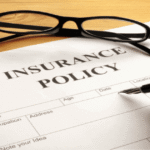Commercial insurance is a vital component for businesses of all sizes. It serves as a safety net that protects against various risks, ensuring that companies can operate smoothly without the fear of financial ruin. Understanding the different types of commercial insurance, how they work, and the specific coverage your business needs can be a daunting task. This guide aims to demystify commercial insurance, offering comprehensive insights into its types, benefits, costs, and essential considerations.
What is Commercial Insurance?
Commercial insurance refers to a broad range of insurance policies designed to protect businesses from potential losses. These losses can arise from a variety of incidents, including property damage, legal liabilities, employee-related risks, and more. Unlike personal insurance, which covers individuals, commercial insurance is tailored to the needs of businesses and is essential for safeguarding assets and ensuring operational continuity.
Key Features of Commercial Insurance
- Risk Management: Commercial insurance is a fundamental aspect of risk management. It helps businesses identify potential risks and implement strategies to mitigate them.
- Coverage Customization: Policies can be tailored to meet the specific needs of a business, considering factors such as industry, size, and operational risks.
- Legal Compliance: Certain types of commercial insurance, such as workers’ compensation and liability insurance, may be legally required for businesses to operate.
Types of Commercial Insurance
Understanding the various types of commercial insurance is crucial for selecting the right policies for your business. Here are some of the most common types:
1. General Liability Insurance
General liability insurance protects businesses from claims related to bodily injury, property damage, and personal injury. This coverage is essential for any business, as it helps cover legal costs, settlements, and medical expenses that may arise from accidents or injuries occurring on the business premises.
2. Property Insurance

Property insurance provides coverage for physical assets, including buildings, equipment, inventory, and furnishings. This insurance protects against risks such as fire, theft, vandalism, and natural disasters.
3. Workers’ Compensation Insurance
Workers’ compensation insurance is designed to protect employees who suffer job-related injuries or illnesses. It covers medical expenses, rehabilitation costs, and lost wages while ensuring that businesses comply with legal requirements.
4. Professional Liability Insurance
Also known as errors and omissions insurance, professional liability insurance protects businesses that provide professional services. This policy covers claims related to negligence, errors, or omissions in the services provided.
5. Business Interruption Insurance
Business interruption insurance provides financial support to businesses that experience a temporary shutdown due to a covered event, such as a fire or natural disaster. It helps cover lost income and ongoing expenses during the downtime.
6. Commercial Auto Insurance
If a business uses vehicles for operations, commercial auto insurance is necessary. This insurance covers liability and physical damage related to company-owned vehicles.
7. Cyber Liability Insurance
With the increasing threat of cyberattacks, cyber liability insurance has become essential for businesses. It protects against data breaches, cyberattacks, and other digital risks, covering costs associated with legal fees, notification, and recovery.
8. Employment Practices Liability Insurance (EPLI)
EPLI protects businesses against claims made by employees regarding discrimination, wrongful termination, harassment, and other employment-related issues. This coverage is crucial for businesses to mitigate legal risks associated with workforce management.
9. Product Liability Insurance

If a business manufactures or sells products, product liability insurance protects against claims related to injuries or damages caused by those products. This coverage is vital for ensuring that businesses can defend themselves against potential lawsuits.
Benefits of Commercial Insurance
Investing in commercial insurance offers numerous benefits, including:
- Financial Protection: Insurance policies protect businesses from substantial financial losses resulting from unexpected events.
- Legal Compliance: Many forms of commercial insurance are legally required, ensuring businesses operate within the law.
- Risk Management: Commercial insurance aids in identifying and managing risks, enhancing overall business security.
- Credibility and Trust: Having adequate insurance coverage can enhance a business’s reputation, instilling trust in customers and partners.
- Peace of Mind: Knowing that your business is protected against potential risks allows business owners to focus on growth and operations.
How to Choose the Right Commercial Insurance
Choosing the right commercial insurance can be challenging. Here are key steps to guide your decision-making process:
1. Assess Your Risks
Begin by evaluating the risks your business faces. Consider factors such as the nature of your operations, location, and industry-specific hazards. This assessment will help you identify which types of coverage are necessary.
2. Understand Coverage Needs
Different businesses have different coverage needs. Consult with an insurance advisor to determine the specific types of insurance that align with your business operations and risk exposure.
3. Compare Policies and Providers
Research various insurance providers and compare their policies, coverage limits, deductibles, and premiums. Look for reputable companies with positive reviews and strong financial ratings.
4. Consider Bundling Options
Many insurers offer bundled packages that combine multiple types of coverage at a discounted rate. Bundling can provide comprehensive protection while reducing overall costs.
5. Review and Update Regularly
Business needs can change over time. Regularly review your insurance policies to ensure they still meet your needs. Update coverage as your business grows or evolves.
Cost of Commercial Insurance

The cost of commercial insurance can vary significantly based on several factors:
- Type of Coverage: Different types of insurance have varying costs based on the level of risk associated with them.
- Business Size and Industry: Larger businesses or those in high-risk industries may face higher premiums due to increased exposure to risks.
- Claims History: A business’s claims history can impact premiums. A history of frequent claims may result in higher costs.
- Location: Geographic location can influence insurance costs. Businesses in areas prone to natural disasters may pay more for property insurance.
- Coverage Limits and Deductibles: Higher coverage limits and lower deductibles generally lead to higher premiums.
To manage costs effectively, businesses should obtain multiple quotes and compare coverage options before making a decision.
Conclusion
Understanding commercial insurance is essential for business owners seeking to protect their investments and ensure operational continuity. By familiarizing yourself with the various types of coverage, assessing your risks, and carefully selecting policies, you can safeguard your business against unforeseen challenges.
Investing in the right commercial insurance not only provides financial protection but also fosters confidence in your business operations. As you navigate the complexities of commercial insurance, remember that consulting with an experienced insurance professional can provide invaluable guidance tailored to your specific needs.
FAQs
1. What is the primary purpose of commercial insurance?
The primary purpose of commercial insurance is to protect businesses from financial losses due to various risks, including property damage, liability claims, and employee-related issues.
2. Is commercial insurance mandatory?
Certain types of commercial insurance, such as workers’ compensation and liability insurance, may be legally required depending on your location and business activities.
3. How much commercial insurance do I need?
The amount of commercial insurance needed varies based on the type of business, industry, and risk exposure. Conduct a thorough risk assessment and consult with an insurance advisor for personalized recommendations.
4. Can I customize my commercial insurance policy?
Yes, commercial insurance policies can be customized to meet the specific needs of your business. Many insurers offer tailored coverage options.
5. How often should I review my commercial insurance policies?
It is advisable to review your commercial insurance policies annually or whenever there are significant changes in your business operations, such as expansions, new services, or changes in personnel.
6. What should I do if I need to file a claim?
If you need to file a claim, contact your insurance provider immediately to report the incident. Provide all necessary documentation and cooperate with the insurer’s investigation to ensure a smooth claims process.
7. How can I lower my commercial insurance premiums?
To lower your premiums, consider increasing your deductible, bundling policies, maintaining a good claims history, and implementing risk management practices to reduce potential hazards.





